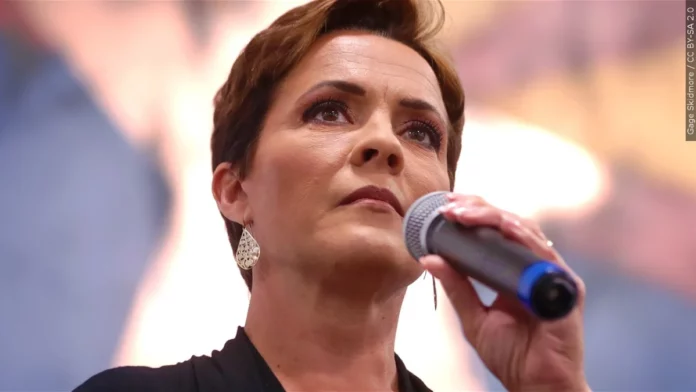In Arizona, a significant legal dispute involving Kari Lake, a Republican candidate who ran for governor. She’s seeking access to 1.3 million signed ballot envelopes from voters. The Kari Lake trial has recently concluded, and a judge is now making a decision.
Despite Kari Lake’s absence from the trial, her lawyer argued that she should have the right to examine how the county conducts its elections. However, county officials oppose this, citing state law that maintains the confidentiality of these signatures. Kari Lake previously lost the election to the current governor, Katie Hobbs, and this marks her third attempt to challenge the election results.
In this case, Kari Lake isn’t questioning her defeat; instead, she’s requesting access to these envelopes. In Arizona, these envelopes serve as legal affirmations where voters confirm their eligibility and ensure they won’t vote more than once. This matter holds significant importance, and the final decision rests with the judge.
Breakdown of arguments in the case
Joseph La Rue emphasises a specific section in Arizona’s Election Code, stating that voter registration records are only meant to be accessible to the voter and no one else, even though Arizona law generally considers government records public. He’s using this argument in Kari Lake’s case, where she is seeking access to 1.3 million signed ballot envelopes to prove errors in the election. La Rue also mentioned that a judge ruled signatures on ballot envelopes are not confidential in a different case, but he wants Judge John Hannah to ignore that ruling.
If Judge Hannah disagrees with La Rue’s points, La Rue has another argument. Even if these records are public, Arizona law allows them to be kept private if their release isn’t in the public’s best interest. La Rue presented witnesses who expressed concerns that making their signatures on ballot envelopes public could lead to harassment, potentially discouraging people from voting by mail or voting at all.
In Lake’s case, she wants access to these signatures to support her claim of errors in the election process, where mismatched signatures were counted. Granting her request would allow her to review all 1.3 million envelopes in Maricopa County.
However, Judge Hannah is facing a complex decision. Witnesses like Bonnie Eckard testified about feeling harassed by people questioning their votes. La Rue argued that publicising these signatures could lead to more harassment, potentially preventing people from voting.
On the other side, Bryan Blehm argued that canvassing about elections is a common practice and not inherently wrong. The judge doubted these claims, especially since canvassing usually happens before elections.
Hannah also questioned Blehm’s argument that voter signatures are publicly available in other documents. He referred to a 1998 ruling where the court acknowledged that certain information might be available elsewhere but stressed the privacy interests of individuals. The judge seemed unconvinced that the availability of signatures elsewhere mattered in this case, suggesting that a different legal provision governed this situation.
Read More: Delving into Kari Lake Family, Children, Marriage, and Personal Life




